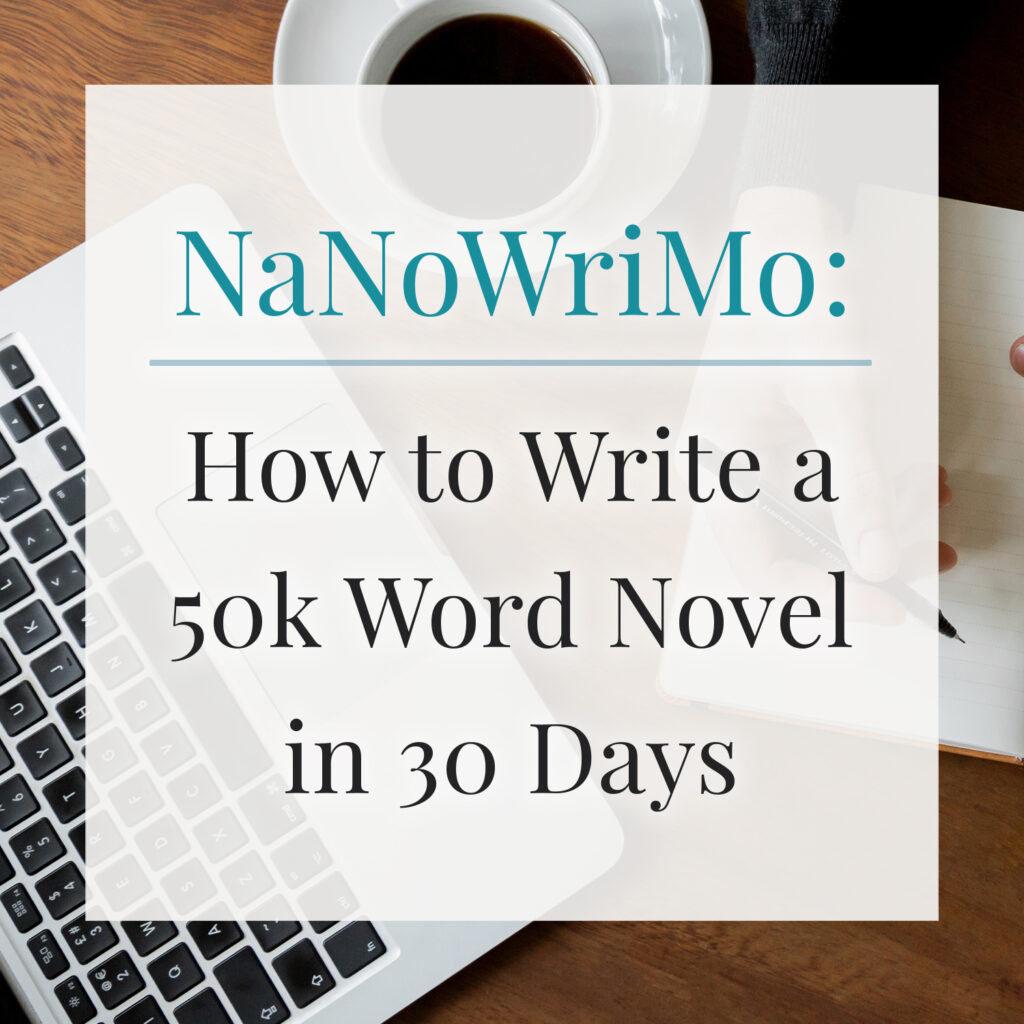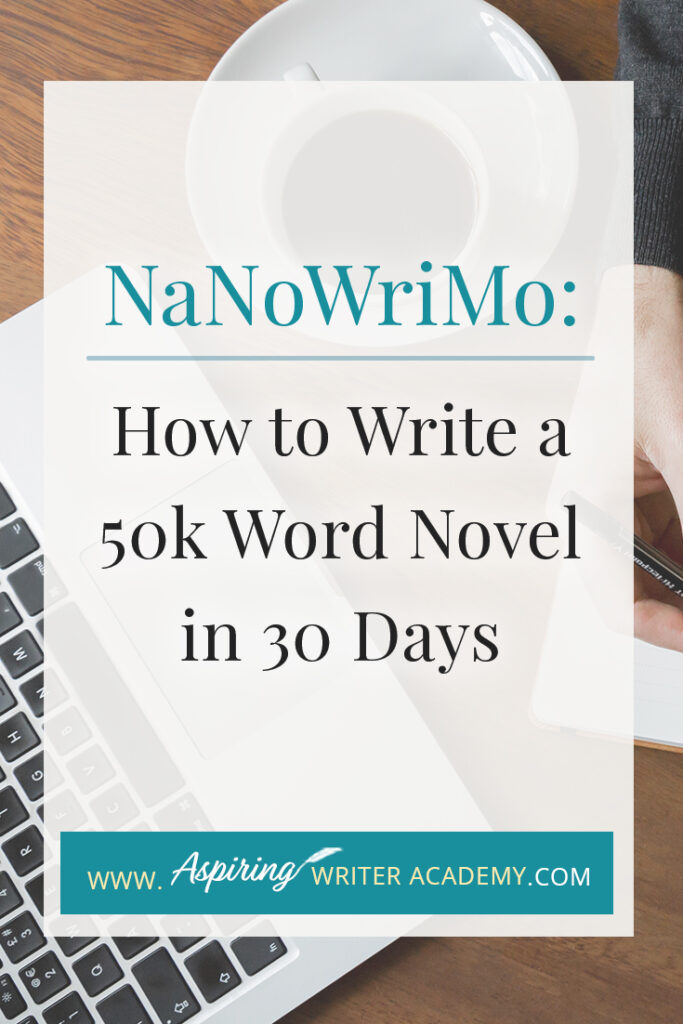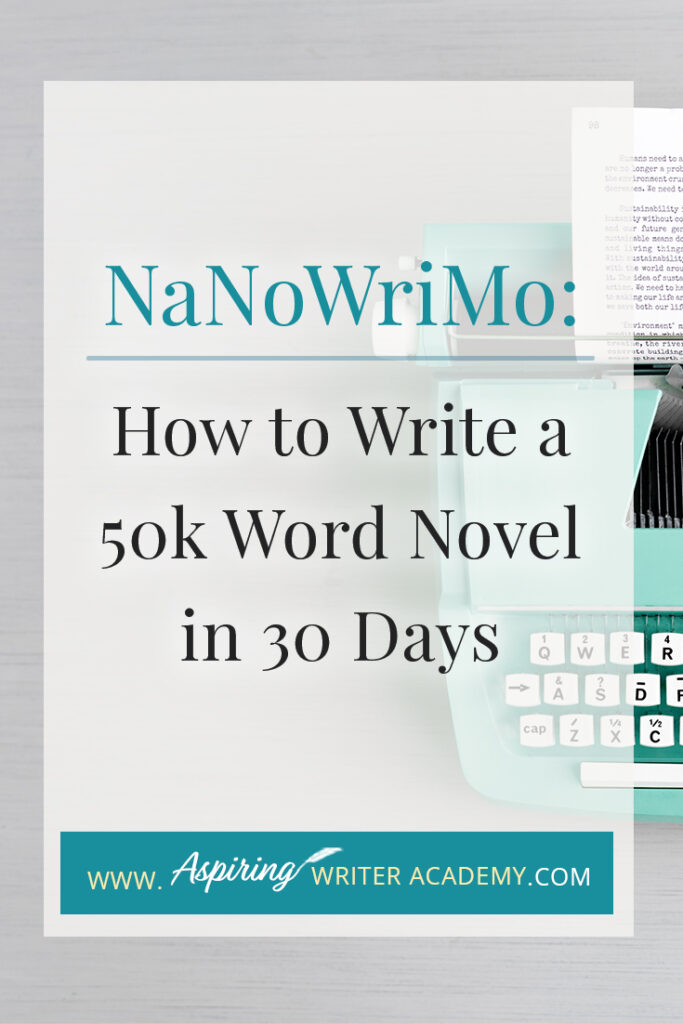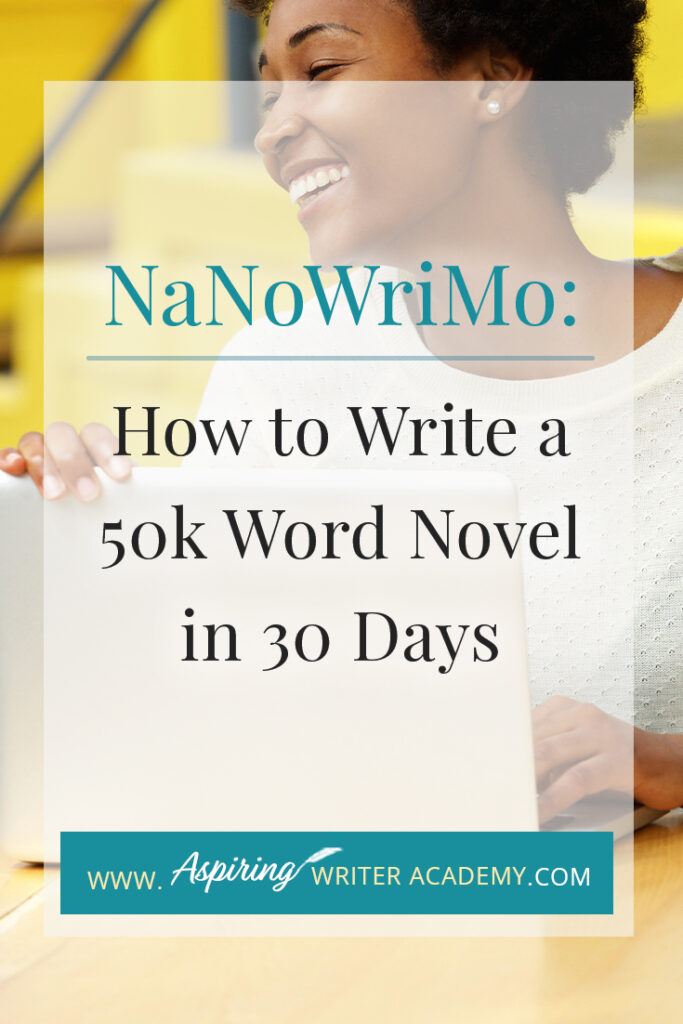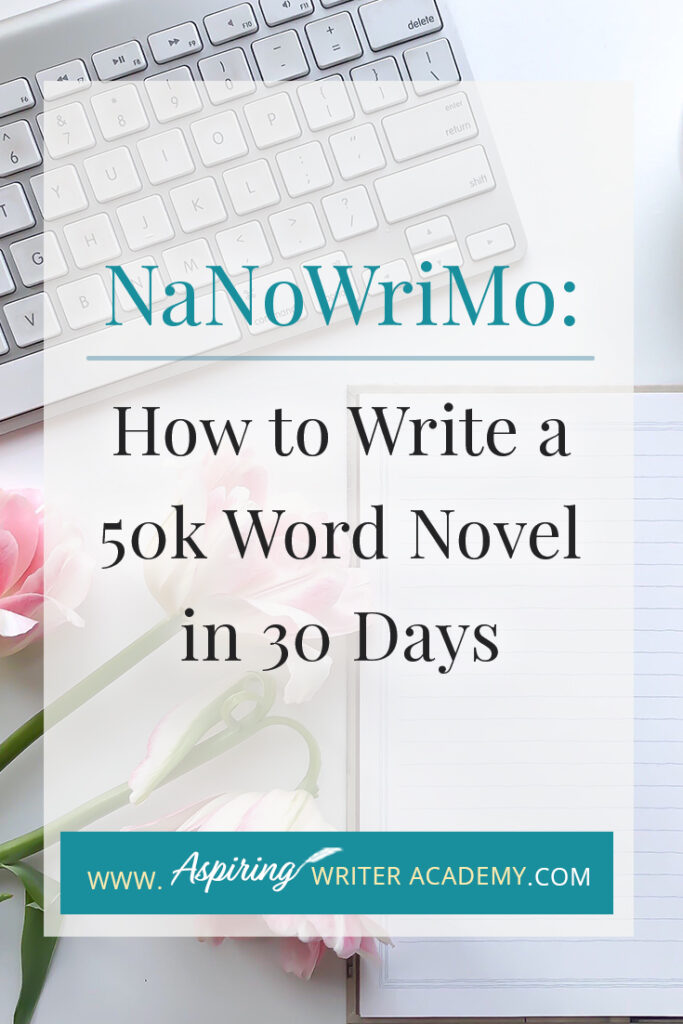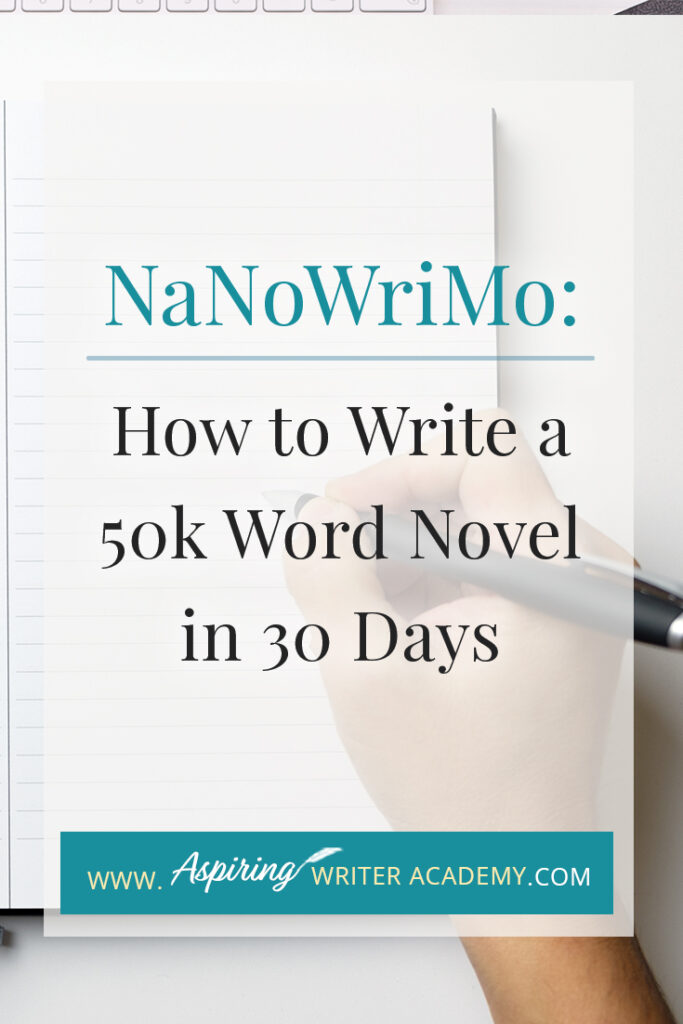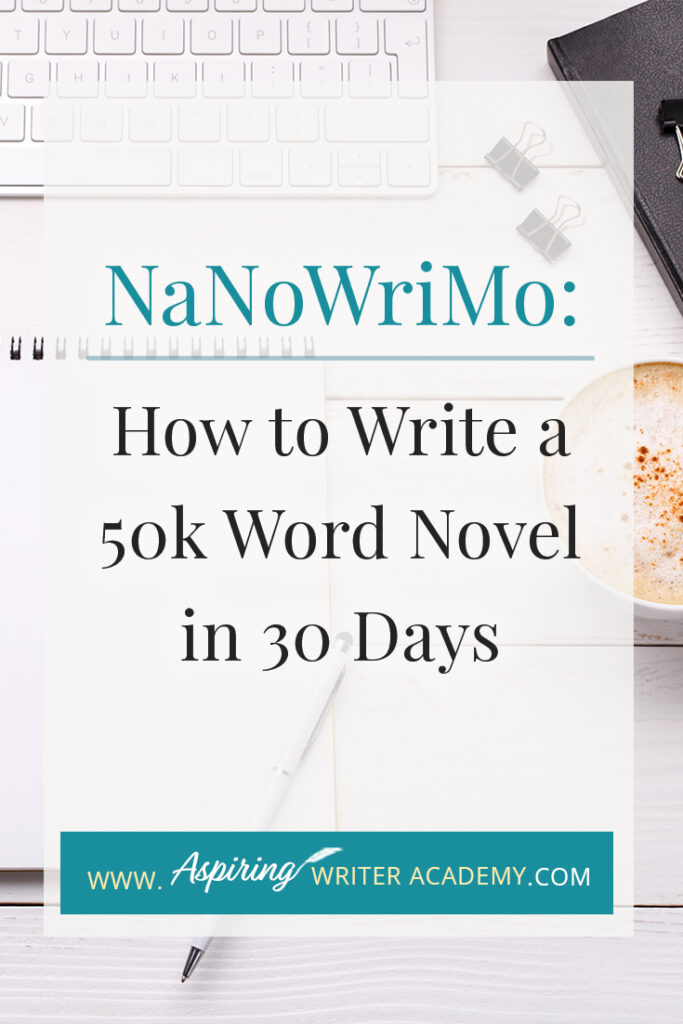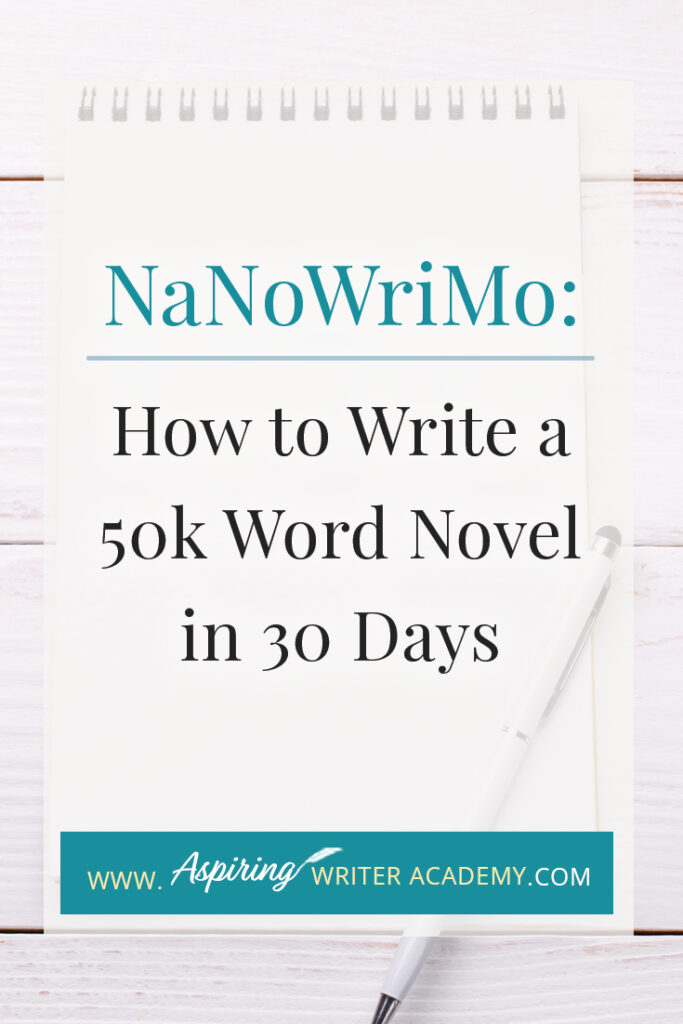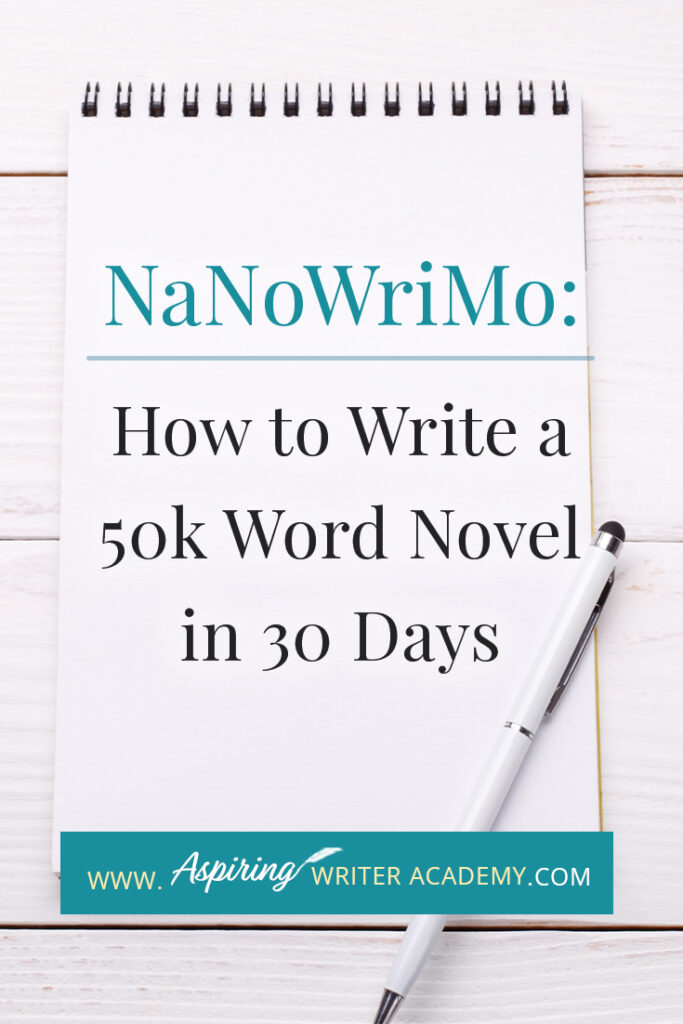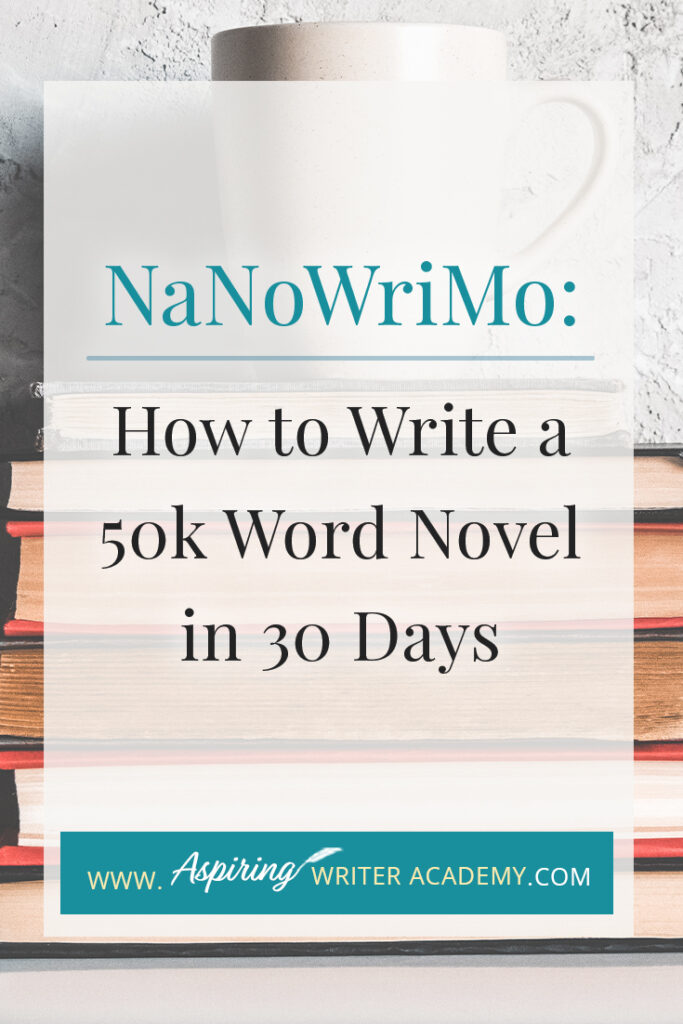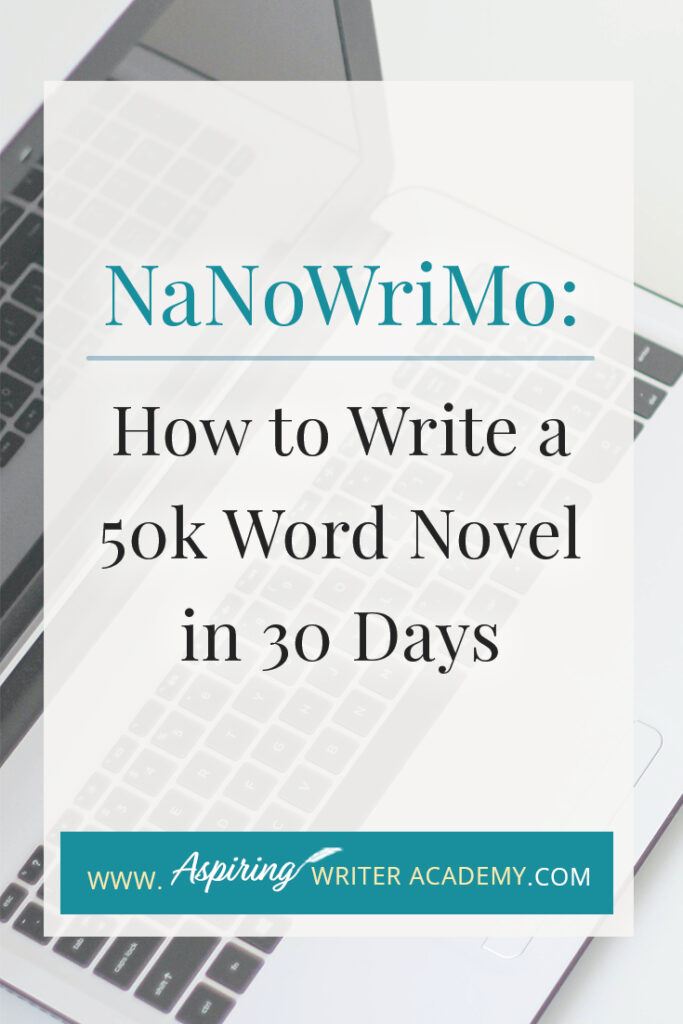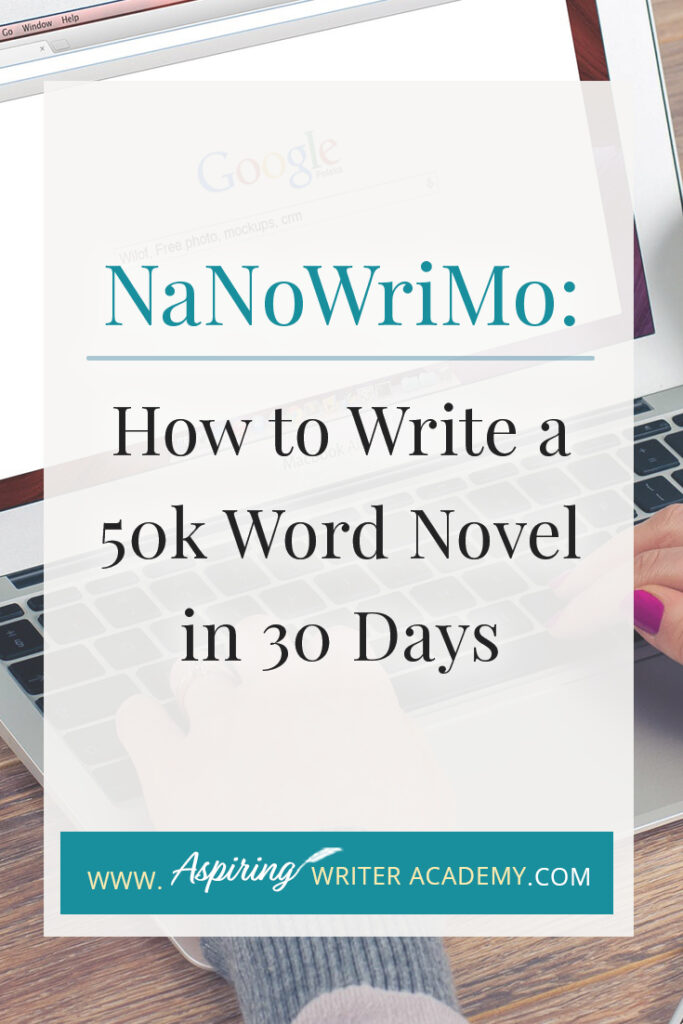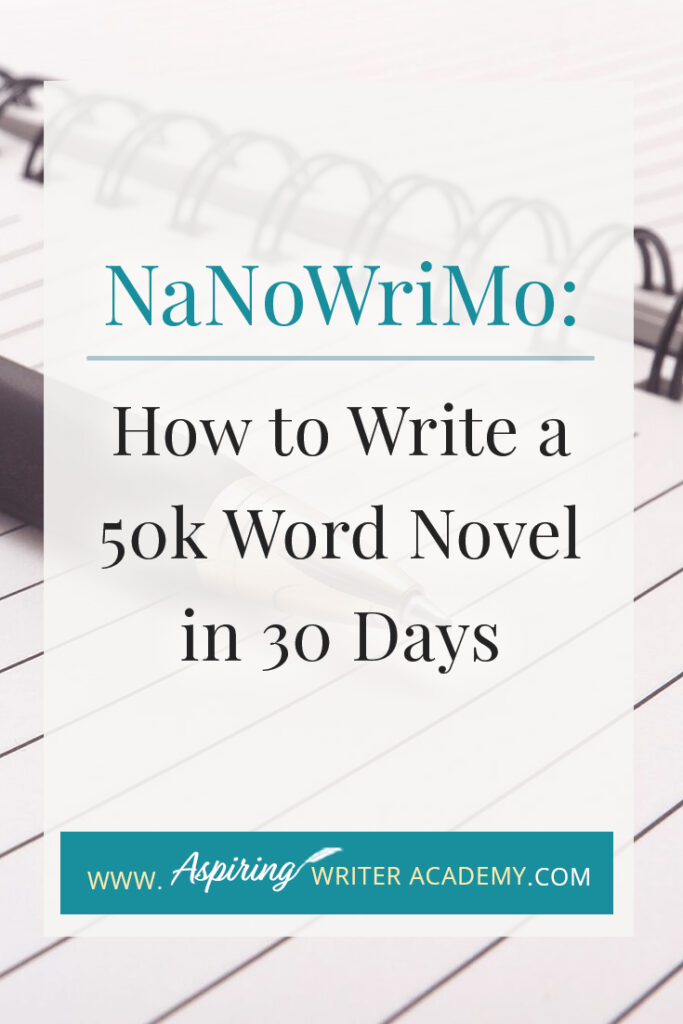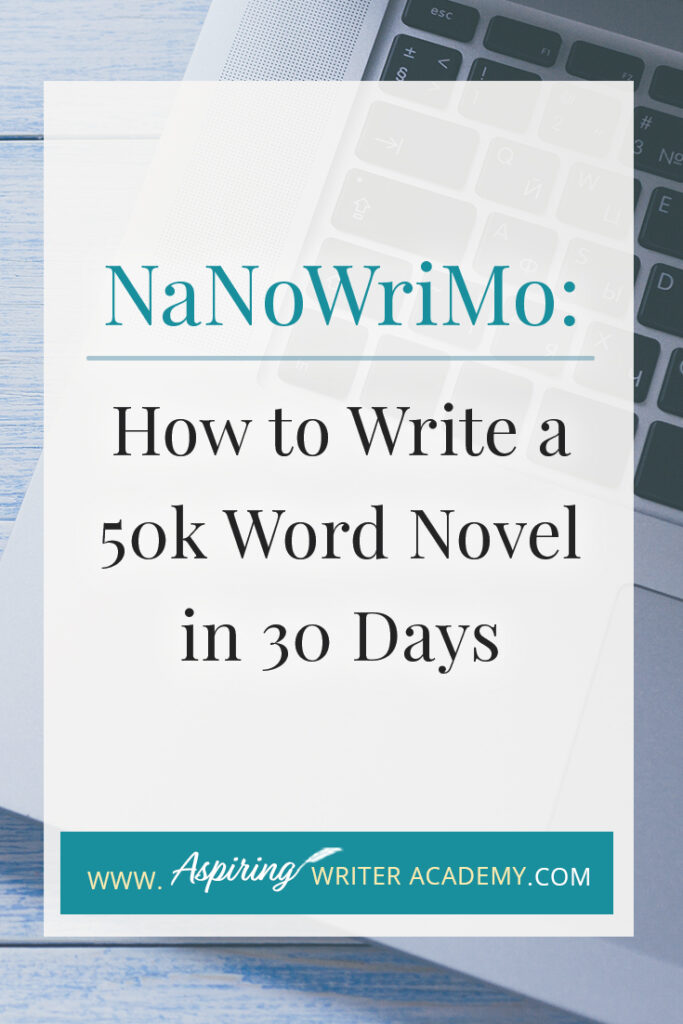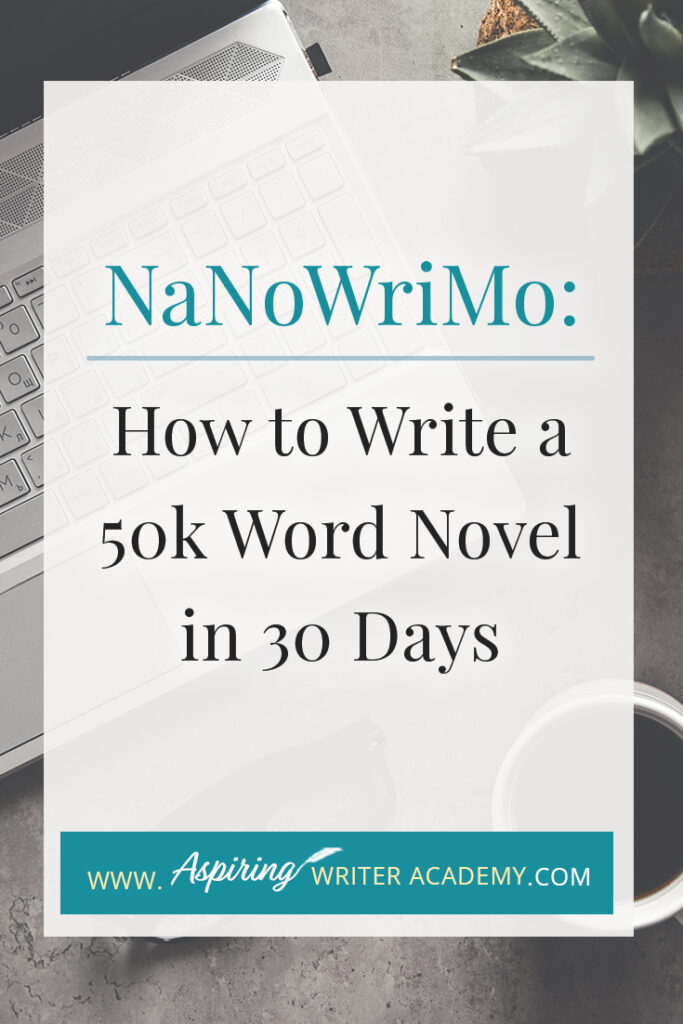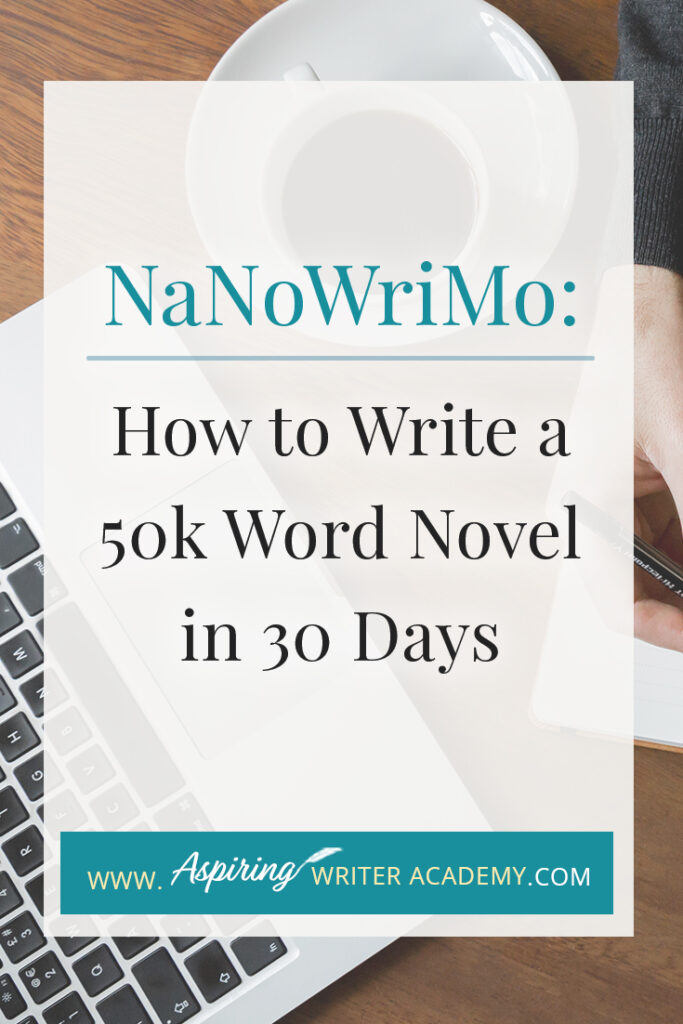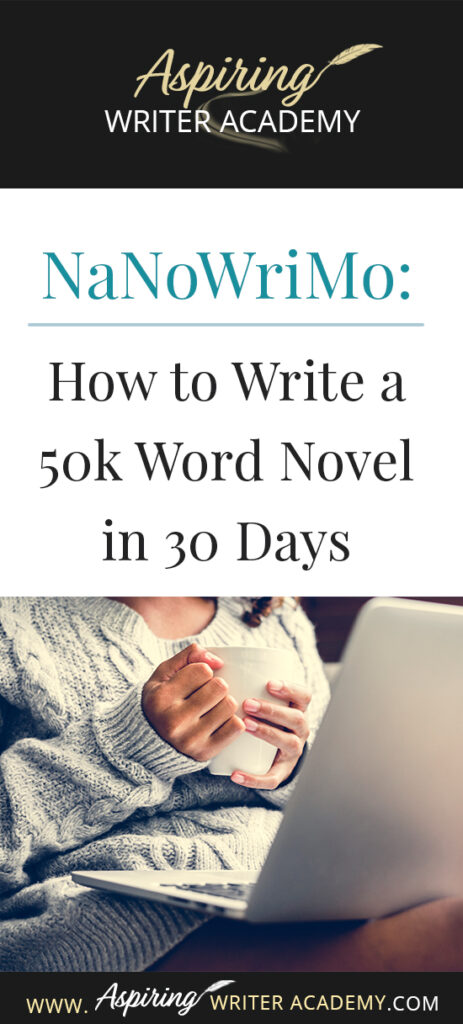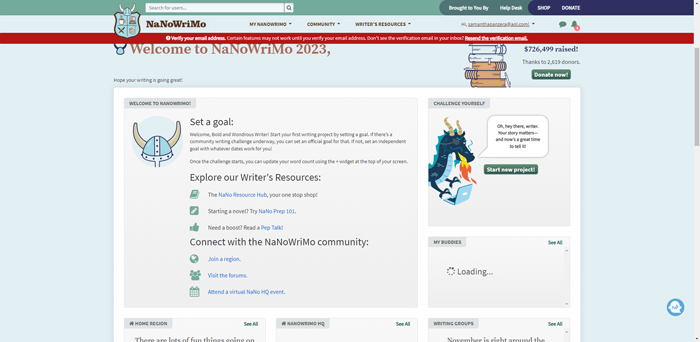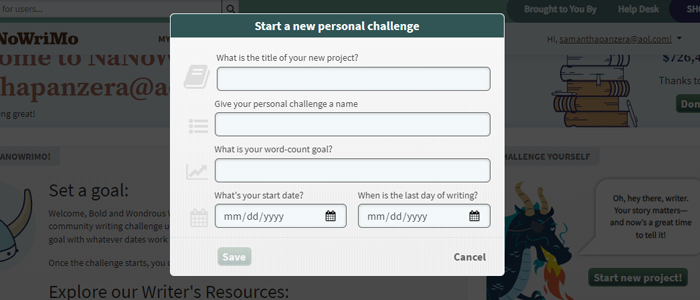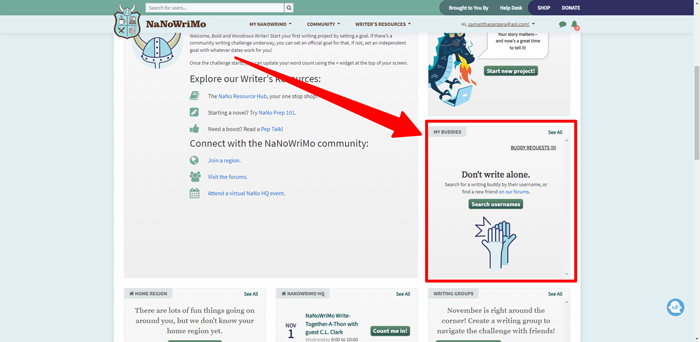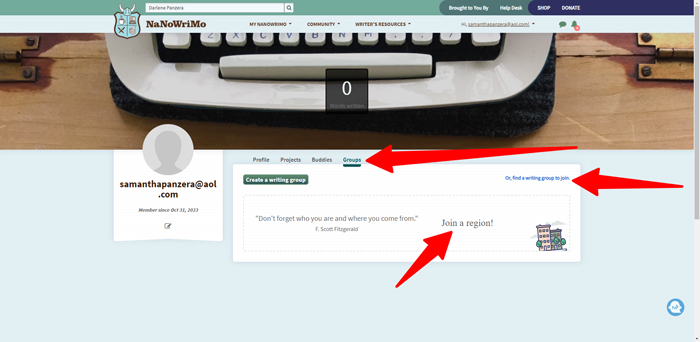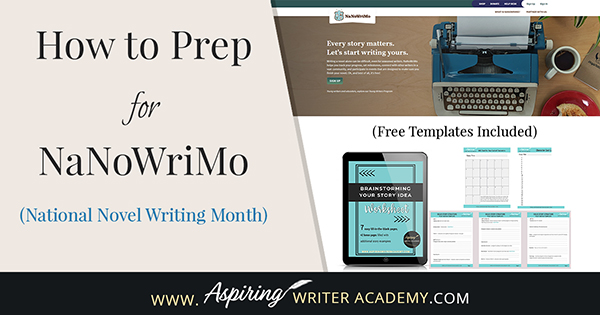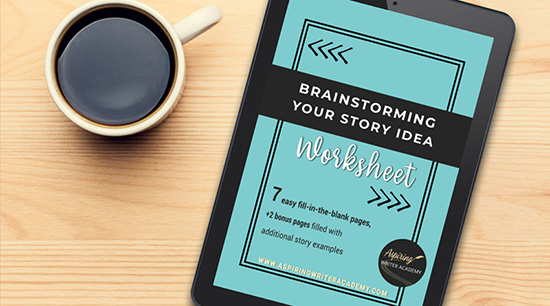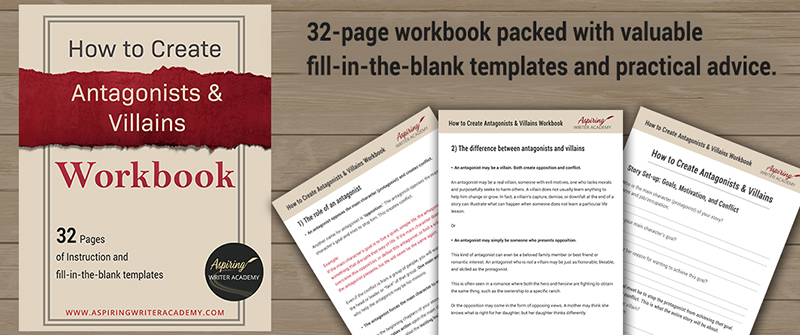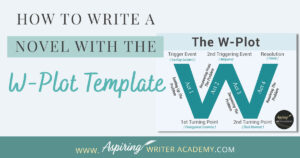NaNoWriMo: How to Write a 50k Word Novel in 30 Days
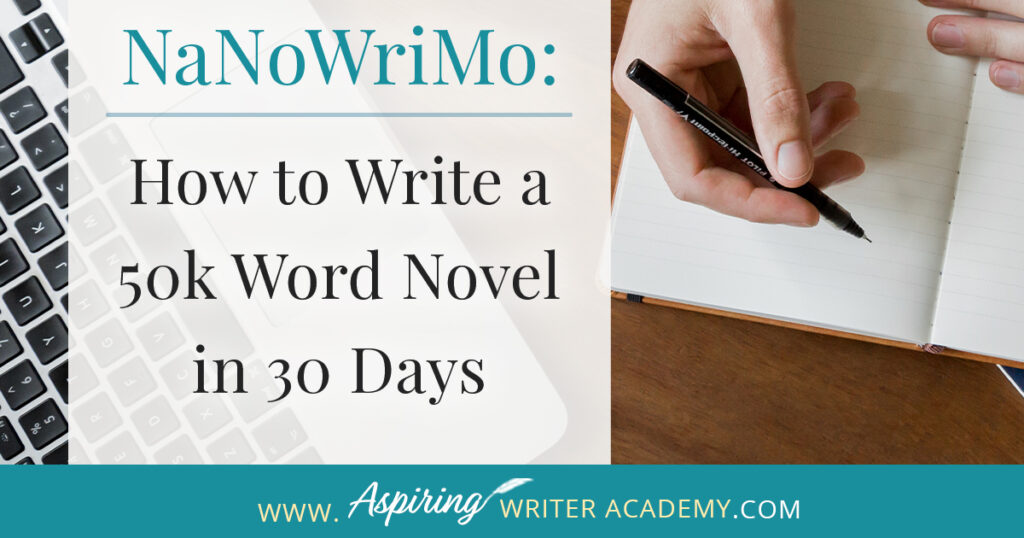
November is National Novel Writing Month, a time when thousands of writers around the world will attempt to write a 50,000-word novel in 30 days. You can sign up for the free challenge at https://nanowrimo.org/ and use their digital graphs and charts to track your progress and keep you accountable each day. But how can you write a novel so quickly?
In our post, NaNoWriMo: How to Write a 50k Word Novel in 30 Days, we give you a list of helpful tips to keep you on target and finish a winner!
To allow yourself the time you need to write a 50k word novel in 30 days, you will have to make some adjustments in your schedule. You will be writing at a rapid pace, perhaps faster than you have ever written before. You may also need to put in more hours than you usually write.
Is this your first attempt at writing a novel? Or have you written a novel before?
1. Time Management
Look at your calendar and realistically block off time when you can write. Make a ‘writing appointment’ with yourself in red and do not let others convince you to change your schedule with invites out to lunch or to do volunteer work, etc. Tell them, “Sorry, I can’t. I have an appointment that I cannot cancel.” You do not have to tell them it is an appointment with yourself to work on your fictional novel.
2. Meal Prep
Talk to your family and friends and explain how important it is that you have their help for the next 30 days while you write your novel. Let them know how much this challenge means to you. Who knows? This finished novel may lead to a book contract. Ask family members if they can bring home a pizza or drop off take-out food or help in the kitchen a few times a week so you are not wasting valuable time cooking dinner.
3. Brainstorm a Story
If you haven’t brainstormed a fictional story prior to the month of November, start with a character, and give that character a goal: something that character desperately wants to do, obtain, or achieve.
Then decide—what is the motivation? Why does the character want this? What happens if the character achieves his goal? What happens if the character fails? What are the consequences? Make the goal matter! Make the consequences dire or unthinkable or unbearable where failure is not an option!
Give your character some opposition to create conflict. A story filled with conflict creates tension that keeps your characters active, your fingers flying across the keyboard, and your readers turning pages.
Who will oppose your character’s goal? Why does the opposition do this? What is the motivation? How does the antagonist or villain stand in your main character’s way? What will be the consequences if this oppositional character fails to stop your main character?
What type of conflict does the opposition present? Is the main character battling to overcome an injury or illness? Is the opposition another character? Or is the foe an approaching storm or an active volcano threatening to wipe out the town? No matter what kind of opposition your character is facing, the opposition will create challenges that increase with intensity as the story continues.
Now ask yourself:
- What does your character want?
- Why does the character want it?
- What are the consequences if the character fails?
- Who or what will oppose your main character and why?
- What does your main character have to do to overcome the opposition and achieve the goal?
- Who else or what else will either help or hinder the main character in his quest? Does your main character have family or friends? Does the villain have minions?
4. Write Fast Without Stopping to Edit
To write a 50k novel in 30 days, you will need to write fast. There will be no time for thoughtful thinking, musing, or meandering around. Write as fast as you can without stopping to edit or rewrite or make significant changes. If you think of a change that you want to make, write it on a sticky note off to the side of your laptop or manuscript, and make the changes after the 30 days are over.
The goal is to have a 50k finished story, not the ultimate, perfectly polished, ready to publish novel. Every novel needs editing after it is completed. Many need several rounds of revisions. When writing a 50k novel in 30 days, you must accept that your storyline may be sloppy, your sentences many need help with structure or grammar, your word choices may need to be replaced, your character’s dialogue may need to be revised. The point is—don’t worry about any of these things while writing. Just get the story down. All editing and revisions can be done after the 30-day challenge is over.
5. Leave Out Minor Characters and Subplots
While writing fast, you may also want to leave out subplots. Subplots and minor characters may lead you off on tangents that over-complicate the story or weave your characters into a tangled mess that has nothing to do with the main plot. Just focus on the main characters and the main storyline and you can always develop your ideas for subplots with other characters later. Only mention subplots as they affect the main character and storyline. You might even ‘tell’ what you intend to flesh out later in a brief transitional paragraph.
6. Keep Your Momentum High and Energy Levels Up
This calls for a little bit of self-care. To keep yourself enthusiastic about writing a multitude of words each day, you may find you need to jump around in your story. If you find yourself stuck on a segment or wishing you could write another scene other than the one you are working on, then—go for it! If you want to write the exciting fight scene in the middle of your novel, do it. If you want to write the climax to figure out how to end your story, it may give you ideas on how to set up the beginning of your story or get through the saggy middle. You do not have to write chronologically. Do whatever keeps you engaged and feeling creative.
Many authors listen to music tracks (with or without lyrics) while writing. The beat of the music can kick your brain into a cadence of activity, and you may find yourself ‘writing to the music.’ Some authors create special ‘soundtracks’ of their favorite music to play whenever they sit down for a writing session, and they claim it helps them to be more productive and write more pages.
You may also require a good night’s sleep, some special comfort food, a pot of coffee, or a high-powered protein or energy drink. Keep yourself in good health! And treat yourself to mini rewards for a certain number of pages written or good progress made on your story. Put a smiley sticker on the calendar for each day you made your page-count goal.
8. Find an Accountability Partner
There is nothing like another person to keep us accountable with our work. It is harder to make excuses to another person than it is to look at your goals on paper and say, “Well, maybe I don’t have to write that many pages after all.”
Yes, you do! You can do this! Your future winner-circle self will thank you for persevering and not giving in when your fingers were sore, your eyes were bleary-eyed, and your enthusiasm was waning. After all your hard work, you will have a finished novel! Find a friend, family member, or writing partner (perhaps someone to do the NaNoWriMo challenge along with you) and ask them to keep you accountable so that you meet your daily deadlines and finish your 50k book.
At the NaNoWriMo official site: https://nanowrimo.org/ you can add writing buddies to your profile so you can all see how many words each person is writing each day. Or you can join a NaNoWriMo group. The organization even has regional groups. This is a great way to meet new people who are also interested in writing.
We hope you have enjoyed NaNoWriMo: How to Write a 50k Word Novel in 30 Days, and that you have gained some valuable tips to keep your novel-writing on track, finish the NaNoWriMo challenge, and claim yourself a winner!
If you have any questions or would like to leave a comment below, we would love to hear from you!
You May Also Like:
How to Prep for NaNoWriMo (National Novel Writing Month)
If you like more help developing your story, you may wish to download our Free Brainstorming Your Story Idea Worksheet
Do you find it difficult to create compelling antagonists and villains for your stories? Do your villains feel cartoonish and unbelievable? Do they lack motivation or a specific game plan? Discover the secrets to crafting villains that will stick with your readers long after they finish your story, with our How to Create Antagonists & Villains Workbook.
This 32-page instructional workbook is packed with valuable fill-in-the-blank templates and practical advice to help you create memorable and effective antagonists and villains. Whether you're a seasoned writer or just starting out, this workbook will take your writing to the next level.
Our Goal for Aspiring Writer Academy is to help people learn how to write quality fiction, teach them to publish and promote their work, and to give them the necessary tools to pursue a writing career.
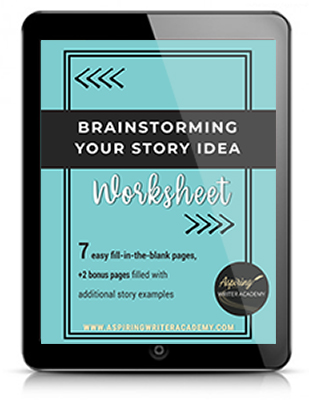
ENTER YOUR EMAIL BELOW
TO GET YOUR FREE
"Brainstorming Your Story Idea Worksheet"
7 easy fill-in-the-blank pages,
+ 2 bonus pages filled with additional story examples.
A valuable tool to develop story plots again and again.
Other Blog Posts You May Like
The Writing Life: Quotes to Embrace the Journey
Do You Dream of Being a Published Author? (How Bad Do You Want It?)
Who is an ‘Aspiring Writer?’ 3 Tips to Escalate Your Career No Matter What Level You Are At
The Writer’s Dream: Quotes to Help You Pursue Your Writing Goals
The Money-Making Author Mindset: Strategies for Financial Growth and Success for Writers
Slingshot Week: How to Set New Goals for Writing in 2023
How to Prep for NaNoWriMo (National Novel Writing Month)
How Writing Prompts Can Improve Your Fictional Story
25 Quotes to Inspire Your Creative Writing
3 Levels of Goal Setting for Fiction Writers
25 Quotes, Tips, and Advice from Famous Authors
45 Motivational Quotes for Aspiring Writers

is a multi-published author, speaker, and writing coach. She writes sweet contemporary, inspirational, and historical romance and loves teaching aspiring writers how to write quality fiction. Read her inspiring story of how she published her first book and launched a successful writing career.

